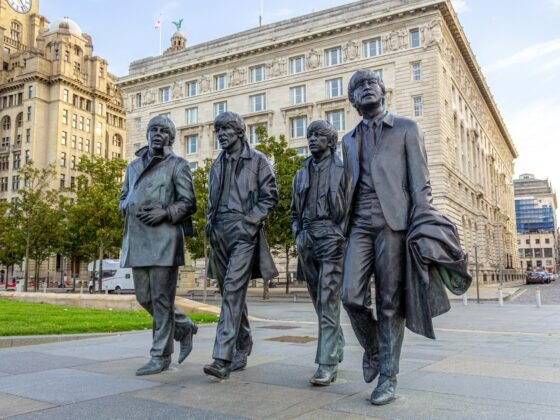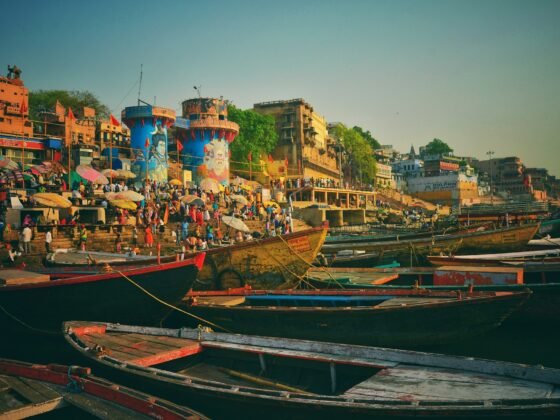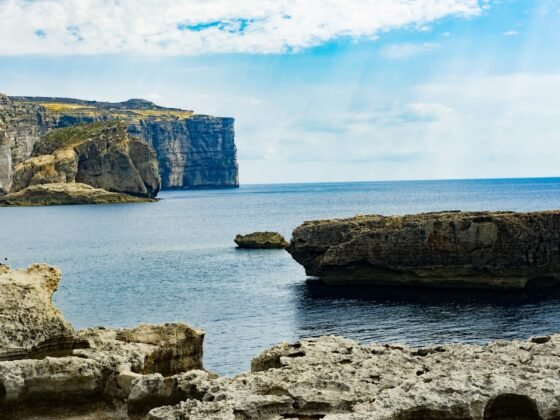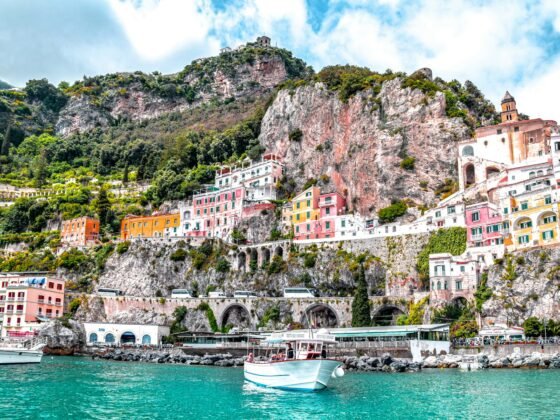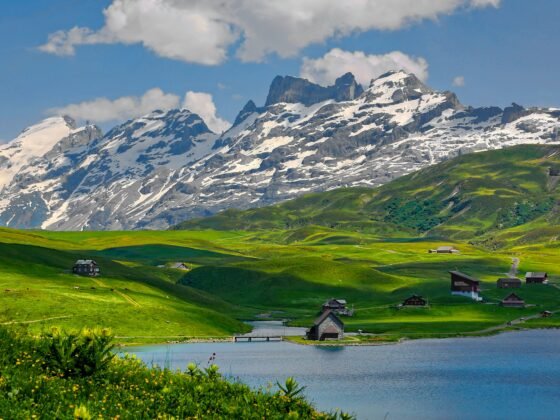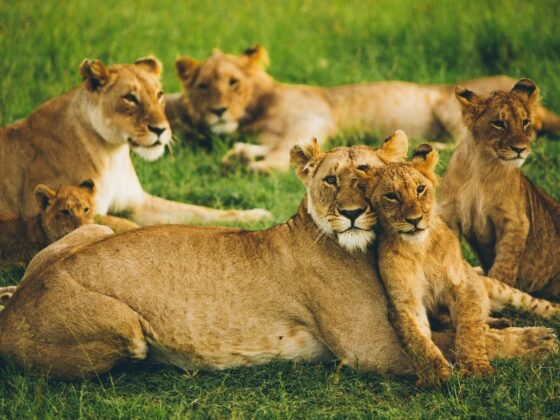Africa is the undisputable land of adventures. The continent teems with thousands of tourist hotspots spread across its entire span. As if by design, each region in Africa boasts its own unique tourist attractions.
Northern and Western Africa are known for their adventure-filled desert hikes. These hikes offer travelers a chance to catch a glimpse of some of the world’s ancient landmarks, including the Great Pyramids of Giza. North Africa is also popular for cruise travels, with Nile cruises being the main highlights.
On the other hand, Eastern and Southern Africa are famous for their wildlife sightseeing opportunities. Most of Africa’s iconic national reserves and game parks are located in these regions. Examples include the Serengeti National Park and Masai Mara Game Reserve in East Africa, and the Kruger, Okavango Delta, and South Luangwa in Southern Africa.
Besides offering amazing wildlife sightseeing opportunities, Eastern and Southern Africa also teem with charming beaches. If you’re planning a safari to East Africa, we highly recommend working with a travel agency like AjKenyasafaris.com that offers all-inclusive and affordable holiday packages within the region.
The tour operator will also enlighten you on a few must-pack items before traveling to the region, or elsewhere around the continent. Those items are basically broken down as follows.
1. Documentation
Travel documents are the very first things you must include in your safari packing list to Africa. Unless you just beamed down from Mars, you should already understand that it’s virtually impossible to travel to most countries without a passport and visa.
Different African countries have their own passport and visa requirements. However, most countries will require you to have a passport that has at least two blank pages, and is valid for a minimum of six months from the time of issuance.
There are slight variances in visa requirements, depending on the country you’re traveling to. The good news, though, is that some East Africa tour operators may help to facilitate your visa application to the region, provided you engage them well ahead of your travel. Even better, most African countries offer visa-exempt privileges to tourists from Europe and North America. That said, it’s always prudent to check beforehand so that you don’t run into unpleasant surprises.
Besides a visa and passport, the following are other crucial travel documents you must include in your Africa safari packing list;
Certificate of Inoculation Against Yellow Fever,
Travel insurance,
Your travel itinerary, and
International Driver’s License (optional but highly recommended).
A travel passport
2. Cash Money
You’ve probably read countless blogs that advise traveling to Africa with credit cards while avoiding cash at all costs. Well, in the interest of your security, it’s wiser to move around with credit cards as opposed to cash.
Unfortunately, credit cards are limited in terms of shopping convenience. Imagine you’ve gone on a tour to a remote African village and want to grab some souvenirs. In such cases, your credit card may not be so handy. The same applies if you’re on a game drive and need to tip your safari guide. Masaimarasafari.in, a professional tour operators in East Africa, recommends carrying both your credit cards and small amount of cash when going for a safari in Africa.
The Euro, Sterling Pound, and the US Dollar are widely accepted across Africa, especially when buying stuff at high-end shopping malls, airports, and from international retail outlets. Just ensure the bills are relatively crisp and in excellent condition. The newer the better. In East Africa, for instance, only US bills that are newer than 2006 are acceptable.
3. Clothing
Determining the right clothing to pack for your African safari vacation is not a walk in the park. Due to stringent luggage limitations imposed by most airline companies, you may not have enough freedom to pack your favorite clothing. Therefore, prioritize the most essential clothing.
Each season in Africa comes with its unique challenges. In the drier months, the African plains can be quite dusty. And when it rains, it pours, quite literally. The convention is to liaise with your travel agency to learn more about the prevailing weather conditions in the destination you intend to visit.
If you’re traveling to the African plains, such as the Masai Mara National Reserve to watch the Africa Great Migration, insist on earth-toned clothing if your trip falls within the drier months. Not only are dull-colored clothing remarkable at concealing dust, but they’re also easy on wild animals. Bright-colored clothing tends to scare away animals, especially the elusive ones like the African leopard.
And if your safari involves hiking dense forests, such as the Bwindi Impenetrable, you should pack waterproof jackets, a pair of boots, and long-sleeved t-shirts to avoid getting stung by nettles. Lastly, to prevent sun damage, a hat, suntan lotion, and a pair of sunglasses will come in handy.
The African leopard perching on a tree (Image Source)
4. Prescription Medications
Another crucial item you must include in your Africa safari packing list is your prescription medications. The African continent, particularly Sub-Saharan Africa, is a habitat for the malaria-transmitting Anopheles mosquitoes.
In East Africa, mosquitoes are most prevalent around the lake basins, as well as in swampy areas and grassy plains. In South Africa, high malaria risk areas include Limpopo and Mpumalanga.
Incidentally, your safari tours may include excursions or camping to these regions, which highly exposes you to the disease. Talk to your doctor and have them prescribe the right antimalarial tablets to pack for your safari to Africa.
Other prescription medications you should consider include;
Painkillers for relieving joint and muscle aches after days of hiking,
Antiseptics, especially when traveling in crowded settlements,
Antihistamines to counteract allergic reactions,
Oral rehydration salts in case you suffer from a bacterial infection that leads to vomiting or diarrhea,
Motion sickness tablets,
Mild sedatives to help relieve insomnia,
Laxatives to treat constipation and
Antibiotics.
In addition to prescription medications, you’ll also need water purification tablets and insect repellents. You will also want to come prepared of treatments for infections and diseases so you are mentally prepared if something goes wrong.
While your safari to Africa will undoubtedly be adventure-filled, the only way to immortalize those encounters is to capture them on a camera. At the very least, insist on powerful cameras that can capture images from a reasonably long distance.
Remember that you won’t always get very near the subject you’re filming or photographing. For instance, during your camping safaris in Masai Mara, you’ll find it a lot safer taking pictures of the big cats from a distance. The same applies when you’re capturing those idyllic sights of the sun dipping beneath the horizons.
And besides packing your camera, you must also carry all the necessary accessories.
Some of those include:
Memory cards – Additional memory cards will be handy when you need extra space to save your photos and videos. And each memory card should come with a case.
Lift straps and carry-on cases – These will relieve the burden of carrying heavy cameras on your back.
Waterproof case – A waterproof case is useful when taking photos in moist conditions.
Tourist taking a photograph (Image Source)
There goes our comprehensive guide on some of the essential things to include in your Africa safari packing list. Remember to always play it safe by packing a little more items than you need, provided you don’t exceed the luggage limits. You can also shop for some of these items, such as clothing, when you get to your destination.




